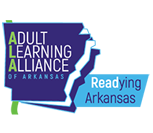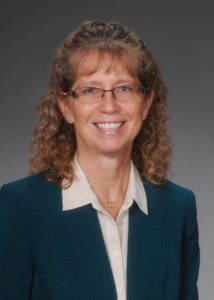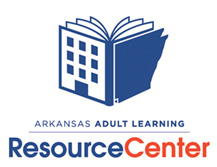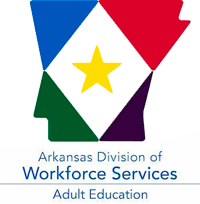 “Never Too Old To Try New Things” by Brandi Fernandez, Arkansas Reads
“Never Too Old To Try New Things” by Brandi Fernandez, Arkansas Reads
I have had the pleasure of working with adult students from over 20 different countries. When I think of a student success story, every one of my students come to mind, because every single one of them is successful. Some have finally mastered the alphabet, while others have finally got the hang of past and present tense verbs. Each day they add a new accomplishment to their list.
Two of my students, Min and Fu, are both 72 years old and are from China. Fu is a tall man, with eyes full of joy and an unprecedented love of knowledge. He was a doctor, who traveled around the world helping people. He has been retired for 12 years now. Min is his wife. She is a small woman, full of fire, who has a hobby of learning. She was a dentist in her younger days, and has been retired for 23 years now after becoming ill.
Currently, Min and Fu are in the process of applying for their green card. They are waiting on the interviews. Over the holiday break, they moved to a different apartment in order to be closer to Ozark Literacy Council. Every Saturday, the two ride the bus to the Fayetteville Public Library, to help them learn English. They have both attended class every day with the exception of about five days. They do not miss unless it is absolutely unavoidable. At 72 years old, they are more involved with a community that used to be foreign to them, many Fayetteville natives are. That is very impressive.
Min and Fu are the kind of people who bring light into a darkened room simply with their laughter. I have never met anyone so full of life as these two. The stories Fu tells us of his travels, in his broken English, and Chinese accent have given me many laughs and even more insight into a world that seems so far away. Min is fearless and has this uncanny ability to help others who speak no Chinese and no English. Min and Fu are the perfect examples of lifelong learners. Being a lifelong learner is one of the most important things a person can be. Love, acceptance, friendships, and change come from being a lifelong learner. At 72 years old, each of these students still grow each and every day. Most importantly, they are helping others through their knowledge. It is not uncommon for Fu to stop me in the middle of a lesson to delve into a story that provides insight from a different culture. For example, before our holiday break, I was giving a lesson about New Year’s traditions. Halfway through my lesson, Fu raised his hand and went on to tell us all about Chinese New Year.
I have learned through Min and Fu that you are never too old to learn. You are never too old to try new things. You are never too old to stop dreaming. Fu wants to get a job after they get their green cards. He wants to clean things, for working is a way to stay young. Min wants to keep learning English, and then maybe learn Spanish. Through Min and Fu, I have learned that I have the ability to help people reach their dreams. I have the ability to change their lives and thus the world, through education.
This is just a small portion of a very long success story, for every student in my classroom plays their own part. They each have achieved things through learning English. They have each taught me many lessons, and I have I taught them many things. Working together, learning together, and teaching together are the real success stories.

 “Never Too Old To Try New Things” by Brandi Fernandez, Arkansas Reads
“Never Too Old To Try New Things” by Brandi Fernandez, Arkansas Reads In October 2013 we welcomed Nancy Leonhardt as the new Executive Director at ALC. A native of California, Nancy has extensive non-profit experience, most recently serving as Administrative Director for Arkansas Advocates for Children and Families (AACF). Her other non-profit experience has been as Executive Director of the Arkansas Flower and Garden Show, Tree Streets, and The American Institute of Architects, Inland California Chapter. A member of West Little Rock Rotary Club, Nancy has served the club in numerous capacities, most recently as president. She also serves Rotary District 6150, which covers 41 clubs in the northeastern portion of the state, as a member of the Youth Exchange Committee and as District Trainer. Nancy has also served locally as president of the Little Rock Christian Academy PTF and Arkansas Festival Ballet.
In October 2013 we welcomed Nancy Leonhardt as the new Executive Director at ALC. A native of California, Nancy has extensive non-profit experience, most recently serving as Administrative Director for Arkansas Advocates for Children and Families (AACF). Her other non-profit experience has been as Executive Director of the Arkansas Flower and Garden Show, Tree Streets, and The American Institute of Architects, Inland California Chapter. A member of West Little Rock Rotary Club, Nancy has served the club in numerous capacities, most recently as president. She also serves Rotary District 6150, which covers 41 clubs in the northeastern portion of the state, as a member of the Youth Exchange Committee and as District Trainer. Nancy has also served locally as president of the Little Rock Christian Academy PTF and Arkansas Festival Ballet.


